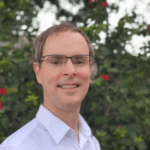Chancellor, Members of Council, Distinguished Guests, Members of Faculty, proud parents, relatives and friends, and, above all, you, the graduands.
A week or so ago, as I was musing about this event, my eye was drawn to a charming photograph on the front page of the West Australian.
Triplets – two boys and a girl with red hair, smiling faces and energy to burn – ready for their first day of school.
You probably guess my train of thought: The triplets beginning their education and this ceremony marking the completion of yours.
But, it is a flawed train of thought – on both counts.
Firstly, the triplets.
The media angle, of course, was the first day of school – the beginning of children’s education.
Decades of similar stories have served to blind us to the fact that the triplets, along with their 29,000 peers, have already packed a lot of education into their first five years. They have, quite literally, been learning since the day they were born.
The period before schooling begins has never been widely accepted by governments as a crucial part of a child’s “education”.
But that is changing. As of last year the title of the Council of Australian Ministers for Education now explicitly includes the very young. We are the Ministerial Council for Education, Early Childhood Development and Youth Affairs.
COAG – the Council of heads of Australian Governments – has agreed to a new National Quality Agenda for early childhood education and care. From January 2012, a jointly-governed unified national framework will apply to organised child care and preschools.
A significant part of the agreed agenda is the requirement for trained early childhood teachers to be employed in child care settings.
There is now unassailable evidence that the early years of life from birth onwards are critical in the formation of intelligence, personality and social behaviour for life.
The effects of early neglect are cumulative and costly.
Quality programs for children aged 0-6 years offer long-term social and economic benefits.
Achieving an integrated, coordinated approach is one the most significant challenges currently confronting us and a failure to meet it will lead to poorer outcomes and increased costs.
Early childhood policy is a marriage of interests – the best interests of the child and the economic interests of the nation.
Let us hope that the marriage is a long and happy one!
Turning to the other end of my train of thought, if this ceremony were being held in the United States, it would called a “commencement”.
Why commencement and not graduation?
I think it is because what you have learned so far is how to go about learning and thinking; what questions to ask; and how to analyse and critique the answers made available to you.
The real learning starts afterwards, when you strike out on your own.
To borrow a phrase from Sir Winston Churchill: graduation is not the end, but it is, perhaps, the end of the beginning.
It is not, I hasten to add, the beginning of the end. Quite the contrary.
Regardless of which hemisphere – north or south – graduation or commencement – it is always a time for celebration and a time to reflect and look forward.
A time to reflect on the good times and the tough times – and to acknowledge those who supported you when you most needed it: family, friends, and the community of Curtin staff.
A time perhaps to recall all those assignments and exam questions which were not awarded A+. All those subtly brilliant arguments that you advanced and not sufficiently appreciated by your lecturers!
Human history generally also helps to inform all of our thinking about the future.
And in many ways that history is the history of the invention of tools, technologies and social systems that have amplified the physical, sensory and mental powers with which we are born.
The lever – to amplify the muscles.
The telescope – to amplify the eye.
The stethoscope – to amplify the ear.
The written word – to amplify the mind
The school – to amplify a nation’s capacity to educate the next generation.
Through tools and social systems we have progressively gained greater control of food, clothing, shelter and security — and raised life above bare existence.
We have gained knowledge of our biological processes and given ourselves increased life span.
We are finding out more about how the physiological and the psychological interact, giving us the promise of improved mental health.
We have invented swifter and swifter communication and swifter and swifter ways to discover, record and manipulate knowledge and ideas.
We have also used tools and technologies destructively – and that is to our lasting shame as inhabitants of the planet.
Some periods of discovery and invention have been so profound they are called “revolutions”. They are rare.
Generally, we single out the agricultural revolution 11,000 years ago, and the industrial revolution 200 years ago.
Now we are in the midst of another: the information revolution. It is being driven by tools and technologies that massively amplify human capacity to gather, store, manipulate and transmit information, which in turn have massively accelerated the rate of further discovery and invention.
Witness the unravelling of genetic codes by machines running 24 hours a day, seven days a week.
New technologies are permeating the fabric of our lives and challenging the coping capacity of social and economic systems.
People are concerned that our social institutions, including education, are not keeping pace.
As a University of Technology, Curtin is more alert than most to these issues, which is perhaps why many of you were drawn here in the first place.
With your Curtin degrees under your belts you are well placed to deal with these issues as they unfold in your various professions.
And in this regard it is comforting that in the midst of a changing world, some things remain constant.
None more so than the basic human values of honesty and integrity, consideration for others and self respect, which while often tested, remain fundamental to individuals, teams and organisations.
The information age is presenting us new and different ethical challenges.
And, you don’t have to look very far to find examples.
Concerns about the use and possible abuse of the burgeoning placement of closed circuit television cameras in public places.
The debate about the Federal Government’s MySchool website on school performance based on massive amounts of data derived from student testing and social and economic data.
And this somewhat Orwellian example which I couldn’t resist in the Sydney Morning Herald last week.
Australia Post has been accused of spying on their postal workers using computerised mail collection boxes.
They are able to track when and where each postie opens the boxes with individual computer keys.
The system – called Cyberlock – was introduced as a measure to stop mail theft.
However six posties faced dismissal last year after management used data from the system to allege they had falsified their time sheets.
A further twist is that while Australia Post were apparently in breach of NSW surveillance laws, they argue they are not subject to State laws.
The world is strange at times.
All in all, you are commencing the next phase of your lives in a climate of great opportunity and challenge.
Here are three challenges I would like you to accept.
As professionals you not only have obligations to yourself and your employers, but also to the community. My first challenge is that you join your colleagues in the responsibility to ensure that your profession is conducted ethically.
The second challenge is for you to keep at the forefront of knowledge in your profession and to participate in the development of that knowledge. Learning and re-learning will play an integral part in your future careers.
The third challenge is to be participators and not spectators. Change is not something to be afraid of or avoided.
Don’t sit around passively and watch the world go by.
Your success will be sweeter if you grasp opportunities and become a contributor to your family, to the organisation you work for and to your community.
In concluding my remarks I find it hard to go past what the American actor, director and humorist, Woody Allen, wrote in his apocryphal “My Speech to the Graduates”. He wrote:
“Summing up, it is clear the future holds great opportunities. It also holds pitfalls. The trick will be to avoid the pitfalls, seize the opportunities, and get back home by six o’clock. ”
It’s good advice.
Finally, I offer you all my congratulations, wish you the very best of luck for the future, and success wherever you may find it.
And keep a weather eye out for those red-headed triplets!


